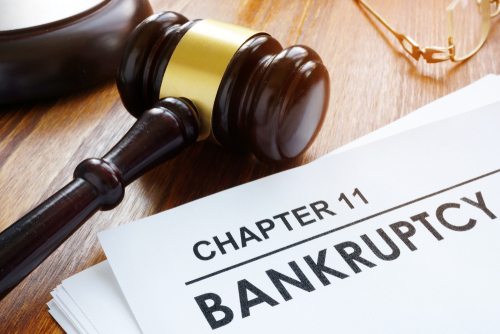
When Is a Real Estate Lawyer Needed in Singapore?
June 30, 2023
Leasing and Tenancy Agreements: Rights and Obligations in Singapore
September 28, 2023Debt Repayment Schemes: Legal Options for Debtors in Singapore

Debt Repayment Schemes Legal Options for Debtors in Singapore
Debt Repayment Schemes: Legal Options for Debtors in Singapore. In today’s dynamic economic landscape, many individuals in Singapore may find themselves facing financial challenges and debt burdens.
However, it’s essential to recognize that legal avenues are available to assist debtors in managing their financial obligations and working towards a debt-free future.
This article delves into the various debt repayment schemes and legal options Singapore offers to help individuals regain control of their financial situation and embark on a path to financial renewal.
Read on – Debt Repayment Schemes: Legal Options for Debtors in Singapore:
Debt Management in Singapore
Managing debts can be overwhelming, and the stress of financial obligations can significantly impact an individual’s well-being.
Singapore, a well-developed and economically vibrant nation, provides various legal solutions to support individuals facing debt-related challenges.
Understanding the Legal Avenues for Debtors

Navigating through debt repayment can seem daunting, but understanding the legal avenues available is the first step towards finding a solution that suits one’s financial circumstances. Let’s explore these options in detail.
Voluntary Arrangements for Debt Repayment
Debt Repayment Plans (DRP) under the Credit Counselling Singapore (CCS)
The Credit Counselling Singapore (CCS) offers a Debt Repayment Plan (DRP) to help debtors manage their debts in a structured manner.
Under this plan, individuals work with trained credit counselors to create a feasible repayment schedule considering their financial capabilities.
The Process of Engaging with Credit Counsellors
Engaging with credit counselors involves a thorough financial assessment, where income, expenses, and debt obligations are evaluated. Based on this assessment, a tailored repayment plan is developed, and negotiations with creditors are facilitated.
Pros and Cons of Voluntary Debt Repayment Plans
Pros include allowing debtors to clear their debts without resorting to legal action and having a structured repayment plan.
However, these plans may require longer repayment periods, and creditors must agree to the proposed plan.
Debt Consolidation Plans (DCP)

A Debt Consolidation Plan (DCP) is designed for individuals with multiple outstanding unsecured debts. It allows debtors to consolidate their debts into a single loan, simplifying repayment.
Eligibility Criteria
To be eligible for a DCP, individuals must meet specific criteria, including having an annual income within a certain range and owing a minimum amount in unsecured debts.
Benefits and Considerations of Debt Consolidation
Debt consolidation offers the advantage of simplified debt management, a fixed interest rate, and a structured repayment plan.
However, individuals must meet the new repayment terms to avoid further financial strain.
Individual Voluntary Arrangements (IVA)
Tailored Solutions for Individuals Facing Financial Difficulties
An Individual Voluntary Arrangement (IVA) is a legal arrangement between debtors and their creditors. It allows individuals to restructure their debts while avoiding bankruptcy.
The Role of Licensed Insolvency Practitioners
IVAs are facilitated by licensed insolvency practitioners. They work closely with debtors to develop a feasible repayment plan that addresses the debtor’s financial circumstances.
The Legal Process and Implications of IVAs
An IVA proposal outlines the repayment terms and conditions, which creditors must agree to. If approved, debtors make regular payments as per the arrangement. And any remaining debts are usually written off after the successful completion of the IVA.
Myth – Bankruptcy is the Only Option

Bankruptcy is often seen as the last resort for debtors, but it’s crucial to recognize that alternative options are available to address debt-related issues.
Before considering bankruptcy, debtors should explore voluntary arrangements, such as DRPs, DCPs, and IVAs, which allow them to address their debts while avoiding the severe implications of bankruptcy.
While bankruptcy is a legal option, it should be viewed as a last resort due to its significant impact on an individual’s credit history and financial future.
The Insolvency, Restructuring, and Dissolution Act (IRDA)
The Insolvency, Restructuring, and Dissolution Act (IRDA) provides a comprehensive legal framework for debt resolution, encompassing both individual and corporate insolvency matters.
The IRDA introduces new procedures and mechanisms to facilitate debt restructuring, including provisions for debt moratoriums, schemes of arrangement, and judicial management.
The IRDA aims to balance the interests of creditors and debtors, fostering a conducive environment for business and individual recovery while ensuring fair treatment for all stakeholders.
The Role of the Official Assignee and Insolvency Office

The Official Assignee, appointed under the IRDA, is crucial in administering bankruptcy proceedings and managing individual insolvency cases.
Individuals facing bankruptcy or insolvency may engage with the Official Assignee’s office to understand their rights, obligations, and available options.
They also facilitate the repayment of creditors through the realization of assets, ensuring a fair distribution of proceeds.
Debt Recovery Tribunals and the Small Claims Tribunals
Seeking Legal Redress through Tribunals
Debt Recovery Tribunals (DRTs) and the Small Claims Tribunals (SCTs) offer debtors an avenue to seek legal redress and resolve debt-related disputes.
Debt Recovery Tribunals for Uncontested Claims
DRTs handle uncontested claims for debts that debtors admit to owing. This streamlined process provides a faster resolution for undisputed debt matters.
Small Claims Tribunals for Lower Value Disputes
SCTs are ideal for resolving disputes involving lower monetary amounts. These tribunals offer an accessible and cost-effective method for seeking recourse.
Mediation as an Alternative Resolution Method

Mediation is an alternative dispute resolution method that allows debtors and creditors to negotiate and reach amicable settlements outside of court.
The Role of the Singapore Mediation Centre (SMC)
The Singapore Mediation Centre (SMC) facilitates mediation proceedings, providing a neutral platform for parties to engage in constructive dialogue.
Mediation offers several benefits, including faster resolution, cost-effectiveness, and preserving relationships between debtors and creditors.
The Importance of Seeking Legal Advice
Navigating debt repayment legalities requires thoroughly understanding various laws, regulations, and procedures. Seeking legal advice ensures that debtors make informed decisions.
Professional legal guidance ensures that debtors choose the most suitable debt repayment scheme and understand the implications of their decisions.
FAQs: Common Questions about Debt Repayment Schemes

What are the options for voluntary debt repayment in Singapore?
Singapore offers various voluntary debt repayment options, including Debt Repayment Plans (DRPs), Debt Consolidation Plans (DCPs), and Individual Voluntary Arrangements (IVAs).
How do Debt Repayment Plans work under CCS?
Debt Repayment Plans (DRPs) under Credit Counselling Singapore (CCS) involve credit counselors working with debtors to develop structured repayment plans based on their financial capabilities.
Can I consolidate my debts with a Debt Consolidation Plan?
Yes, a Debt Consolidation Plan (DCP) allows individuals with multiple unsecured debts to consolidate them into a single loan, simplifying repayment.
What is an Individual Voluntary Arrangement (IVA)?
An Individual Voluntary Arrangement (IVA) is a legal arrangement between debtors and creditors that allows debtors to restructure their debts and avoid bankruptcy.
What are the misconceptions about bankruptcy?
A common misconception is that bankruptcy is the only option for debtors facing financial difficulties when alternative solutions like DRPs, DCPs, and IVAs are available.
What does the Insolvency, Restructuring, and Dissolution Act cover?
The Insolvency, Restructuring, and Dissolution Act (IRDA) provides a comprehensive legal framework for debt resolution, encompassing both individual and corporate insolvency matters.
What role does the Official Assignee play in debt resolution?
The Official Assignee is pivotal in administering bankruptcy proceedings and managing individual insolvency cases.
How can mediation help in resolving debt disputes?
Mediation offers a platform for debtors and creditors to negotiate and reach settlements outside of court, providing a faster and cost-effective resolution.
Is seeking legal advice necessary for debt repayment?
Seeking legal advice is essential to understand the implications of debt repayment options and make informed decisions tailored to individual circumstances.
How can I proactively manage my finances to avoid debt?
Proactively managing finances involves enhancing financial literacy, budgeting effectively, and making informed decisions to prevent falling into debt.
Debt Repayment Schemes: Legal Options for Debtors in Singapore – Conclusion:

As debtors navigate the complexities of their financial challenges, it’s crucial to recognize that legal options are available to support their journey toward financial renewal.
From voluntary arrangements to mediation and tribunals, each avenue offers a unique solution tailored to individual circumstances.
By equipping themselves with knowledge and seeking professional legal advice, debtors can make informed decisions that pave the way to a brighter financial future.
Are you seeking professional and reliable legal advice or lawyers in Singapore? Contact us today!



